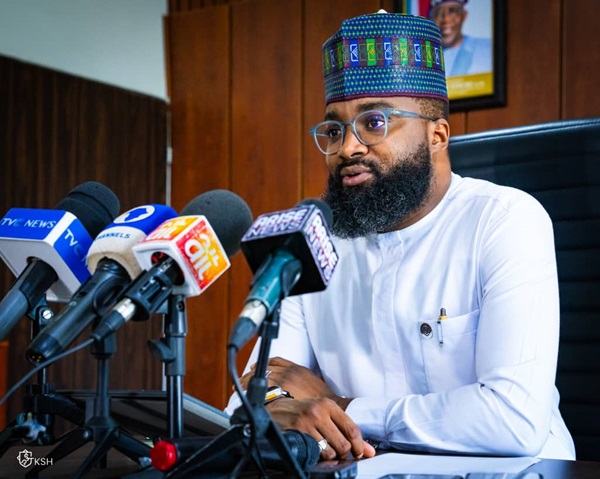
The executive vice chairman of the National Agency for Science and Engineering Infrastructure (NASENI), Mr. Khalil Halilu has outlined his vision for the agency’s products and technologies.
The NASENI head said the aim is to make the commodities available in every household in Nigeria within the next few years. During a media interaction in Abuja, Halilu unveiled plans for NASENI products to reach the market through technology transfer arrangements by the first quarter of 2024.
Halilu emphasised the high expectations placed on NASENI by stakeholders, stressing the need for transparency and focus in order to fulfil the agency’s mandate. He stated that since assuming office in September, one of his priorities has been enhancing the human capital potential within the agency. This includes improving staff motivation to help them adapt to forthcoming changes. Additionally, engaging with stakeholders and rebranding the agency around its products and technologies are key focus areas.
Halilu pointed out that the days of prototypes gathering dust on shelves at NASENI are over. He stressed that all products and technologies developed by the agency must find their way to the market. He declared, “We are going to do a national rebranding to have footsteps of NASENI products in every household in the country. In the next few years, this is what Nigerians should expect. We are no longer going to sit back to watch endless research and prototypes, keeping them on the shelves”.
Halilu further outlined plans to establish NASENI showrooms in major cities across the country, ensuring that NASENI products are not just seen on television but can be experienced by the public. This move is seen as a way to hold the agency accountable for its promises.
The new NASENI chief executive disclosed that upon his arrival, he found a wealth of research with over 150 products at the prototype stage. However, the commercialisation aspect was lacking. Halilu, drawing from his background in manufacturing and technology innovation, emphasised that research should ultimately result in tangible products that impact the economy.
He stated that NASENI will achieve this through technology transfer and highlighted the significant interest from the private sector. Halilu shared details of a recent trip to China, where NASENI signed a $2 billion partnership Memorandum of Understanding for technology transfer into Nigeria. This achievement occurred in just five weeks of operations. At the same forum, NASENI received multiple letters of intent from partners willing to invest in Nigeria’s economy, amounting to $4 billion.
Halilu noted that the trip to China has the potential to attract about $6 billion in foreign direct investment to Nigeria. The areas generating interest included unmanned aerial vehicles (UAVs), electric vehicles (EVs), agricultural equipment, electronics, electrical equipment and more.
The EVC emphasised that the world is keen on Africa at this moment and it presents an opportunity for development, job creation, and poverty alleviation. Nigeria has abundant resources and a large workforce, but the country must add value to its commodities. He stated, “One of the alarming things in our economy is the fact that we are adding little or no value to our commodities, yet we are heavily a consuming economy with a big workforce. We are trying to see how we are going to change that narrative”.
Halilu stressed that Nigeria cannot afford to continue exporting raw materials and the agency has devised strategies, partnerships, and policies to add value to commodities and raw materials before exporting them.
In a statement by the agency’s director of information, Olusegun Ayeoyenikan, Halilu highlighted that NASENI has been actively engaging with numerous stakeholders interested in collaborating and procuring its products. He mentioned the Rural Electrification Agency (REA) as one such partner that has committed to a $200 million procurement agreement with NASENI, provided the agency can produce the desired products.
Halilu added that NASENI’s team has also been in discussions with the Ministers of Science and Technology, Information and Finance, among other stakeholders. Many parties have expressed interest in supporting the new direction charted by NASENI and are eager to collaborate with the agency.
The latest stakeholder engagement took place when the management of NASENI, led by the EVC, met with members of the National Assembly, particularly the Senate Committee on NASENI, which has oversight functions over the agency. The lawmakers and NASENI share a common goal of bringing products to the economy and are aligned in their expectations and hope for economic revitalisation through increased productivity and development in the real sector.


